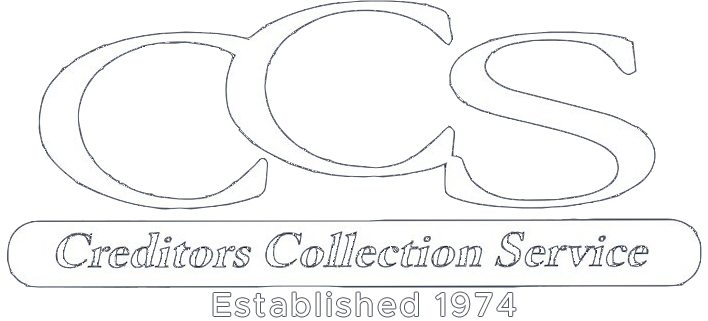
Credit Collection Services
Credit collection services are provided by collection agencies which apply a wide range of credit recovery methods. Such Credit recovery are used for successful collection of outstanding receivables and bad debts. The DCAs (Debt Collection Agencies) serve different industries in order to provide professional help for businesses.
Such agencies supply these businesses with a range of high-quality services, which are needed to ensure prompt payment. DCAs offer their services when a customer (debtor) ignores the specified time frame and prolongs the bill or the invoice, or when the subject of debt simply forgets that he has a default payment. Usually companies, which offer goods and services for B2B (business to business) are affected the most.

Credit collection services & debt recovery
Pre-legal and legal collection methods consist of ethical working practices, and are designed to protect creditor’s reputation and good name, increase profit, maximise customer’s organisation cash flow and in the same time decrease costs and help maintaining the finance balance in creditor’s company. Typical services a debt recovery agency can offer to its clients a pre-legal credit collection services, including:
- Call centre support;
- Consultancy and advice;
- Data research and scanning using specialised software;
- Profound investigation of the debtor’s profile;
- Legal and ethical tools in order to contact the subject of debt. These methods can vary from personal emails and letters, phone calls, text messages and voice messages to contacting the debtor via Skype, LinkedIn, etc.;
- Provide professional outsourced credit control team to advise within the creditor’s company during the credit collection process;
- Legal dunning process services. The beginning of this process depends on the country. In Germany, for example, a legal dunning notice can be issued only when the total amount of the debt has been dunned not less than three times;
- Detailed debtor’s trace, both electronic and manual (it is always verified and legal) in order to track the debtor or collect a new address or contact details;
- In-house Debt Collection personal visits, also known as “field collection services” (where appropriate, e.g. when the subject of debt agrees to personal visits)- if necessary, a debt collection agent can visit the debtor’s property in order to settle an agreement and collect the amount due. Field agents implement contact with the subjects in debt and negotiate payment either on the whole default amount or paid on a monthly basis until the debtor’s profile is clear from debt;
- Letters before litigation actions consisting of detailed information about the outstanding amount due to be paid;
- Last detailed checks before litigation to ensure legal actions are viable and to determine whether litigation will be a suitable course of action;
- Legal credit collection services (debt collection operations management)

CCS Credit Collection Services
In some circumstances pre-sue actions are not successful, despite best efforts. In such cases legal workflows procedures take place. All defaulted debtors’ accounts endure litigation segmentation and thorough screening. Legal actions consist of precise and prompt use of court actions along with effective legal methods of enforcement. Some of the court credit collection services are:
- Official claims to affiliated attorneys;
- Enforcement processing (sending enforcement agent or court bailiff). In order to settle the debt outside court, an enforcement agent can negotiate with the debtor and sell part of his belongings to recover the debt amount due to be paid. It is possible that the enforcement procedure includes distraint or “the seizure of someone’s property in order to obtain payment or money owed” (ext. link 1);
- Legal attachment, where part of the debtor’s property, which is equal to the amount of the default payment, is transferred to the creditor in order to settle the debt;
- Statutory demand letter (must be given personally to the debtor) before starting legal actions;
- Legal claims & court garnishment- the debtor receives an official document and he is obliged to pay the debt’s amount, e.g. wage garnishment;
- Long-term monitoring:
Credit control services (including credit check as well) for avoiding future debts and increasing creditor’s company profitability. Such strategy will drastically decrease bad debts in a business as it establishes the potential risks by researching the borrower’s profile before lending a credit amount; Monitoring past debtors. This technique can reduce some costs in an organisation by following the debtor’s profile in order to avoid new bad debts; Status reports on future clients and partner companies. This report is vital when a company is about to make an important business decision.
Credit Collection Services, known as CCS for short, is one of the largest debt collection agencies in the US. This company is a part of The CCS Companies, so when you look at your credit report, you may see a collection with the creditor listed as “CCS” or “Credit Collection Services”.
If you’re getting hassled by CCS, which represents many high-profile American creditors, you should know that this established team of debt collectors are known to use shady tactics when it comes to debt collection.
That said, by taking the right steps, you can stop the annoying and distressing calls and you’ll be able to put your experiences with Credit Collection Services behind you.
Knowing Your FDCPA Rights
Harassing calls from a debt collection company tends to trigger a range of unpleasant emotions, from anxiety to fear to anger to frustration and beyond.
The problem is that a lot of people who get these calls just don’t understand their rights. The truth is, debt collectors actually have a set of rules they have to follow when attempting to collect on a debt.
These rules are collectively known as the Fair Debt Collection Practices Act. FDCPA prevents debt collectors from harassing you. Therefore, if you’re contacted by a debt collector, simply state that you understand your rights under the Fair Debt Collection Practices Act.
Many times this will stop them in their tracks.
With this in mind, I’ll walk you through the process of removing Credit Collection Services (CCS) from your credit report.
How to Deal with CCS
Now, let’s get into the details. The first thing that you will need to do, whether you’ve been getting phone calls from CCS or received a letter from Credit Collection Services, is to send a letter to the company which requests “snail mail” communication only. The goal of this is to ensure that there is always a written record of what transpires between you and CCS.
With phone calls, there won’t be a record. This means that the debt collection company could, in theory, go back on its word to you and then deny having given its word. Snail mail is the best way to protect yourself.
When you type up the letter, again make sure that you mention that fact that you’re aware of your rights as they are outlined in the Fair Debt Collection Practices Act.
Snail mail simplifies everything. It’s all there in black and white. If trouble arises, such as lawsuit directed at you via CCS, you’ll have your paper trail. So, make sure that you send the letter. It’s really important!
How to Remove CCS From Your Credit Report
1. Have Them Prove the Debt is Yours
Now, let’s move forward to Step Two, which must be completed within 30 days of the first time that CCS got in touch with you.
Keep this deadline in mind and act fast. Things will be harder for you if you don’t.
Step Two is all about getting the negative entry wiped off of your credit report. The best way to get the job done is to put the onus on CCS. Send the company another letter, asking them to show you proof that the debt in question is rightfully yours. You are allowed to make this request. It’s perfectly legal and proper, and generally called a Debt Validation Letter. This right is granted to you via the Fair Debt Collection Practices Act.
The reason why this works is because CCS probably purchased the debt. This means that you’re not dealing with the initial creditor. Since CCS bought the debt, the company may not be able to prove that it’s a valid debt. The company may lack data related to the debt. Another scenario is that the debt data isn’t complete or is inaccurate.
If Credit Collection Services is unable to validate your debt, the company will be mandated by law to stop trying to collect on the debt. The company will also need to remove the negative entry from your credit report.
2. Negotiate to Remove the Collection
Sometimes, the debt validation letter doesn’t work out. The company may be able to validate the debt. This means that the negative entry remains and that the company is free to continue contacting you, with a mind to getting money from you.
If the debt validation letter didn’t work out, don’t give up hope. It’s often possible to do deals with collection companies like CCS. To negotiate, you should offer to pay half of what you owe, upon the condition that Credit Collection Services will remove the negative entry from the credit report upon receipt of your payment.
CCS may haggle with you. Try to come to an agreement which is fair. Your credit rating is important. If you need to pay a bit more than fifty percent to get a bad entry removed, it’s worth it in terms of your financial future.
Always negotiate and do everything else in writing…never, ever do it over the phone!
If you and CCS come to an agreement about payment terms, avoid granting the company access to your bank account. Instead, write up a check and mail it in. Thirty days afterwards, follow up with a letter to make certain that the negative entry has been taken off of your credit report. If it hasn’t been, send yet another letter requesting that this be done.
3. Hire a Professional
Lastly, if you’re the type of person who would rather have a professional handle it and just be done with the whole thing, I suggest you check out Credit Saint. They’ll take care of you, and honestly they usually get stuff removed a lot quicker. Check out their website.






